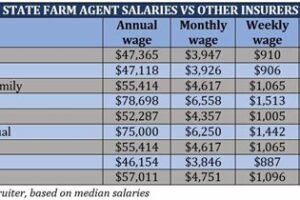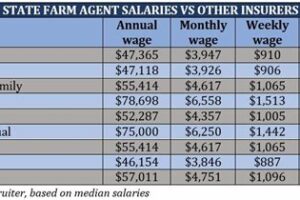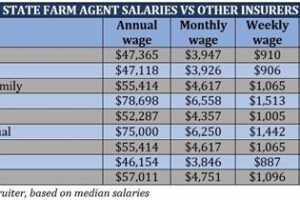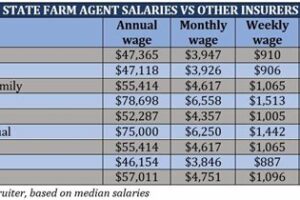Table of Contents
Wondering if game farms are legal in Nebraska? Find out the answer and regulations around them in this informative article.
Are you curious about whether game farms are allowed in the state of Nebraska? Look no further because we’ve got the answers you need. As you may know, game farms have been a controversial topic across the country. Some people believe that they provide a valuable service by breeding and raising game animals for hunting purposes. Others argue that they are cruel and inhumane, causing unnecessary suffering to animals. So, where does Nebraska stand on this issue? Let’s dive in and find out if game farms are legal in the Cornhusker State.
What are Game Farms?
Game farms are privately owned businesses that breed and raise game animals for hunting purposes. These farms typically offer hunting opportunities to the public and charge a fee for the experience. The animals raised on these farms may include deer, elk, pheasants, and other game animals.
History of Game Farms in Nebraska
The practice of game farming has been around for centuries, but it wasn’t until the 20th century that it became a regulated industry. In Nebraska, game farming began in the 1960s when the state started issuing permits for the breeding and raising of game animals. Today, there are over 200 game farms in Nebraska, making it one of the top states for game farming in the country.
Regulations on Game Farms in Nebraska
Nebraska has strict regulations in place when it comes to game farms. These regulations are designed to ensure the safety and well-being of the animals, as well as the hunters who visit these farms. The Nebraska Game and Parks Commission is responsible for regulating game farms in the state and ensuring that they comply with all state and federal laws.
Types of Game Farm Permits
In Nebraska, there are three types of game farm permits that a person can obtain. These include the Class A Game Breeder Permit, the Class B Game Breeder Permit, and the Class C Shooting Preserve Permit. Each permit has its own set of requirements and regulations that must be followed.
Requirements for Game Farm Permits
To obtain a game farm permit in Nebraska, a person must meet certain requirements. These requirements include having a clean criminal record, providing proof of financial responsibility, and undergoing a background check. In addition, game farm operators must provide adequate housing and care for their animals and maintain accurate records of their breeding and hunting activities.
Concerns about Game Farms
While game farms can provide a source of income for farmers and hunting opportunities for enthusiasts, there are also concerns about their impact on wildlife populations and the spread of disease. Some people believe that game farms can lead to the spread of chronic wasting disease (CWD), a fatal neurological disease that affects deer and elk. Others worry that hunting on game farms can lead to the over-harvesting of certain species.
The Future of Game Farming in Nebraska
Despite these concerns, game farming continues to be a thriving industry in Nebraska. In fact, the state has recently passed new legislation that will allow game farms to expand their operations and offer more hunting opportunities to the public. As long as these farms continue to follow the regulations put in place by the state, they will be able to operate legally and provide a valuable service to hunters and wildlife enthusiasts alike.
The Bottom Line
So, does Nebraska allow game farms? The answer is yes, but with strict regulations in place. Game farming is a thriving industry in the state, with hundreds of farms offering hunting opportunities to the public. While there are concerns about the impact of game farms on wildlife populations and the spread of disease, as long as these farms continue to operate within the guidelines set forth by the state, they will be able to continue providing a valuable service to hunters and wildlife enthusiasts for years to come.
Understanding game farming in Nebraska is crucial to determining whether or not it is allowed in the state. Game farming is the practice of raising wild animals, such as deer or elk, in captivity for commercial purposes like hunting, breeding, and selling meat. Although game farming is not a new concept, it has become more prevalent in recent years due to the demand for exotic meats and trophy hunting.
The legal status of game farms in Nebraska is a topic of debate. Nebraska allows for game farming, but there are regulations in place to ensure that it is done safely and ethically. The Nebraska Game and Parks Commission oversees game farming in the state and requires game farmers to obtain permits and follow strict guidelines. These guidelines require that game farmers provide proper care and nutrition for their animals, maintain safe enclosures, and prevent the spread of diseases.
Nebraska’s approach to game farming regulations is focused on balancing the interests of game farmers with those of the public. While the state recognizes the economic benefits of game farming, it also acknowledges the potential risks associated with captive wildlife. As a result, Nebraska has implemented regulations that aim to protect both game farmers and the public from harm.
What animals can be raised on game farms in Nebraska? Nebraska allows game farmers to raise a variety of wild animals, including deer, elk, bison, and ostriches. Each species has its own set of regulations and requirements that must be followed. For example, deer must be tested for chronic wasting disease before being transported or sold, and elk must be kept in enclosures with at least eight-foot-tall fences.
Benefits and drawbacks of game farming are often debated. Supporters of game farming argue that it provides economic opportunities for rural communities and promotes conservation efforts. Additionally, game farming can offer a sustainable and humane source of meat for consumers who are concerned about the welfare of animals raised in factory farms. However, critics argue that game farming is unethical and can have negative impacts on wild populations and ecosystems. In addition, there are concerns about the spread of diseases between captive and wild animals.
How game farms affect Nebraska’s ecosystem is a complex issue. While game farms may provide economic benefits, they can also have negative impacts on the environment. For example, escaped animals can potentially introduce new diseases or genetic traits into wild populations. Additionally, game farms may compete with wild populations for resources like food and habitat. It is important for game farmers to operate responsibly and take measures to minimize any negative impacts on the environment.
Public opinions on game farming in Nebraska vary. Some people support game farming as a way to promote economic growth and provide a sustainable source of meat. Others are concerned about the welfare of captive animals and the potential risks associated with captive wildlife. There are also concerns about the impact of game farming on local ecosystems and wild populations.
Examples of successful game farms in Nebraska are numerous. One such example is the Oak Creek Whitetail Ranch, which has been in operation since 1991. The ranch offers guided hunts for trophy whitetail deer and has won numerous awards for its breeding program. Another successful game farm is the Rafter 7 Ranch, which raises bison and sells their meat to consumers and restaurants across the country.
Challenges faced by game farmers in Nebraska include complying with strict regulations, preventing the spread of disease, and managing escaped animals. Additionally, game farmers may face opposition from animal welfare groups and environmentalists who are concerned about the impact of game farming on wild populations and ecosystems.
The future of game farming in Nebraska is uncertain. As demand for exotic meats and trophy hunting increases, it is likely that game farming will continue to grow in popularity. However, it is important for the state to carefully consider the potential risks and benefits associated with game farming and to ensure that regulations are in place to protect both game farmers and the public.
Once upon a time, there was a group of passionate hunters in Nebraska who wanted to start their own game farm. They researched and learned about the regulations and laws surrounding game farms in their state.
- After careful consideration, they found that the state of Nebraska does indeed allow game farms.
- However, there are specific rules and requirements that must be followed.
- The game farm must obtain a permit from the Nebraska Game and Parks Commission.
- All game animals raised on the farm must be obtained legally and cannot be taken from the wild.
- The farm must have proper fencing and enclosures to keep the animals contained.
- The animals must be properly cared for and provided with adequate food, water, and shelter.
- The game farm must also comply with any additional rules and regulations set forth by the commission.
Overall, the passionate hunters were pleased to find that the state of Nebraska allowed game farms. They were willing to follow all the necessary regulations and requirements in order to pursue their dream of starting a successful game farm.
In conclusion, while the state of Nebraska does allow game farms, it is important to thoroughly research and comply with all regulations in order to operate a legal and ethical business.
Hello there, fellow readers! I hope you found the article informative and enlightening about the topic of game farms in Nebraska. As we wrap up this discussion, let us take a moment to summarize some of the essential points we have covered so far.
Firstly, it is vital to understand that game farming is legal in Nebraska, provided the owners adhere to specific regulations and obtain the necessary permits. Game farms are generally private ventures where animals such as deer, elk, and pheasants are raised for hunting or breeding purposes. These farms can be beneficial to the state’s economy, especially in rural areas, as they provide employment opportunities and generate revenue from hunters and tourists.
However, it is also important to consider the potential risks associated with game farms, such as the spread of diseases and the impact on native wildlife populations. The state has implemented various measures to mitigate these risks, including regular inspections and disease testing requirements for game farm operators. As responsible citizens, we must ensure that game farms operate sustainably and ethically, without compromising the health and safety of animals and the environment.
In conclusion, Nebraska does allow game farms, but with certain conditions. As with any industry, game farming has its pros and cons, and it is up to us to weigh them carefully and make informed decisions. Thank you for visiting our blog, and we hope you gained valuable insights into this fascinating and complex topic!
.
People also ask about Does The State Of Nebraska Allow Game Farms?
- What is a game farm?
- Are game farms legal in Nebraska?
- What kind of game animals are raised on game farms in Nebraska?
- Can anyone start a game farm in Nebraska?
- What are the requirements for owning a game farm in Nebraska?
A game farm is a privately-owned property where game animals are raised for hunting purposes.
Yes, game farms are legal in Nebraska. The state has regulations and permits that game farmers need to adhere to.
Game animals such as pheasants, quails, chukars, partridges, and mallards are commonly raised on game farms in Nebraska.
No, not anyone can start a game farm in Nebraska. Prospective game farmers need to apply for permits and meet certain requirements before they can operate a game farm.
Game farmers in Nebraska need to have a valid game breeding license, a game breeding permit, and a game breeding facility registration. They also need to comply with the state’s regulations on game farming.
If you’re interested in starting a game farm in Nebraska, make sure to research and comply with the state’s regulations and requirements to avoid any legal issues.






